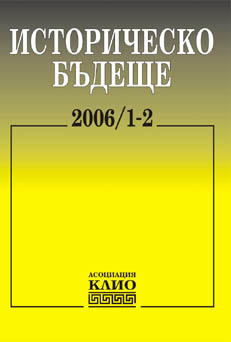
Historical Future, 1997–2006
Историческо бъдеще, 1997–2006
Keywords: bibliography; Historical future
A bibliography of “Historical future” 1997-2006
More...
Keywords: bibliography; Historical future
A bibliography of “Historical future” 1997-2006
More...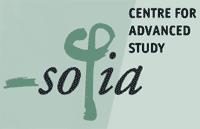
The article seeks to revise the current mainstream interpretation of the relations between the Balkans and the West as it has emerged from the mirror reading of the Balkanism paradigm. It interrogates the grounds for interpreting the Western discourse about the Balkans in terms of Said’s Orientalism and the Balkan visions of Europe in terms of the hegemonic Western discourse.
More...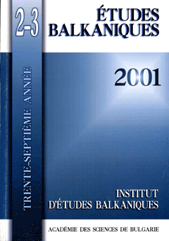
Keywords: Image of the "Other"; Bulgarian perception of France from the 15th to 19th century; Images of the French in Bulgarian Texts; 15th to 19th century
More...
Keywords: Bulgarian transition after 1989; Bulgarian literature and writers in 1989-1998
More...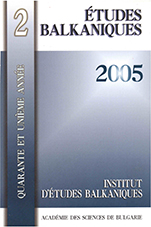
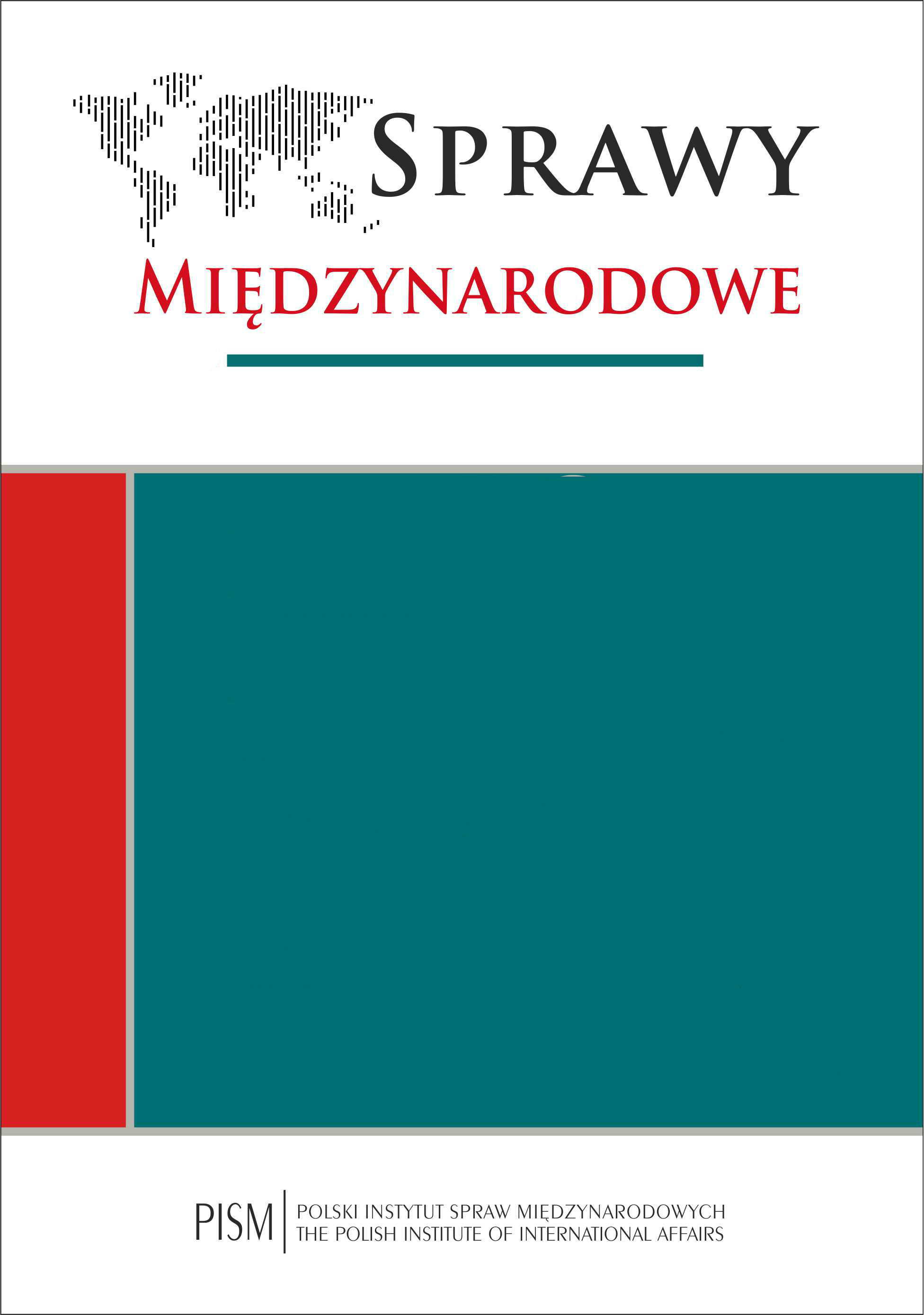
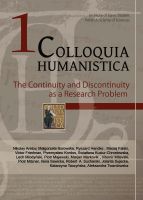
Keywords: mental mapping; Eastern Europe; Balkans
The issue of mental mapping of Eastern Europe (Wolff 1994), posed during the Enlightenment, and the similar problem of the image of the Balkans as a periphery of Europe (Todorova 1997), are both multifaceted. This paper is dealing with just one of their various aspects – the image of the Balkans as seen from certain typical European view-points and reactions to that image in Bulgaria. The reactions to the images forged somewhere in “Europe” stem from two opposed attitudes, of acceptance and of rejection.
More...

Scientific Life
More...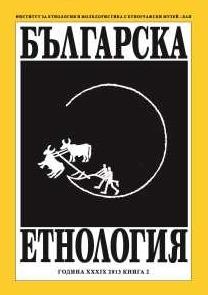
The paper focuses on the role of Christian churches and religion among the Bulgarian emigrants in the UK for the practical and emotional integration of newcomers in the multicultural British society. The author shows how the Christian denominations are ethnically/ nationally bound by defining them as “Bulgarian“ and turning them into emigration institutions. Despite their positive role in the emigration process, the Christian churches have a dual significance for the Bulgarian community in the UK. Religion builds ethnic boundaries locking emigrants within (or perhaps trapping them) the “Bulgarian“ and deprives them of the possibility of social and cultural integration in Britain.
More...OUVRAGE PRÉCIEUX ILLUSTRANT LES RELATIONS BULGARO-RUSSES SOUS LE GOUVERNEMENT DE STAMBOLOV (Попов, Радослав . Русия срещу Стамболов или Стамболов срещу Русия . София 2000); WHAT IS IT TO BE A WOMAN AND A MAN IN THE BALKANS (Gender Relations in South Eastern Europe: Historical Perspectives on Womanhood and Manhood in 1 9 th and 20 th Century, Belgrade–Graz 2002); Crampton, R. J. THE BALKANS SINCE THE SECOND WORLD WAR. London–New York, Longman, 2002; Първанова , Зорка . МЕЖДУ НЕОСЪЩЕСТВЕНИЯ ХЮРИЕТ И НЕИЗБЕЖНАТА ВОЙНА . София 2002; Стоилова Тамара . ТРЕТИЯТ РИМ . МИРНИТЕ РЕШЕНИЯ НА РУСКАТА ИМПЕРСКА ПОЛИТИКА В ЮГОИЗТОЧНА ЕВРОПА ПРЕЗ Х V ВЕК . София 2001; Мутафова , Красимира . СТАРОПРЕСТОЛНИЯТ ТЪРНОВ В ОСМАНОТУРСКАТА КНИЖНИНА Х V-Х V В . В . Търново 2002; Фотић , Александар . СВЕТА ГОРА И ХИЛАНДАР У ОСМАНСКОМ ЦАРСТВУ Х V-XV ВЕК . Београд 2000; Response to the review by Nikolai Aretov on the book “St Mount Athos and the Bulgarian New-martyrdom” (Sofia, 200 ) by Konstantinos Nichoritis*; THE BALKANS: Mapping Identities (8 TH - 2 ST C.) First International NEXUS Conference (Sofia, 18-20 October 2002); SECOND INTERNATIONAL TURKOLOGICAL SYMPOSIUM MOSTAR – 2002; ANNIVERSARY OF THE OUTBREAK OF THE BALKAN WAR; JUBILEE CONFERENCE ON THE EPARCHATE OF VARNA AND PRESLAV; A CONFERENCE ON ANTI-SEMITISM IN THE BALKANS Mont Athos et de Chilandar. Vesko Obreshkov
More...ВЪПРЕКИ РАЗΛИЧИЯТА: ИНТЕРКУΛТУРНИ ДИАΛОЗИ НА БАΛКАНИТЕ; Aretov, Nikolay (ur.), Akademično izdatelstvo „Prof. Marin Drinov“, Sofija, 2008.
More...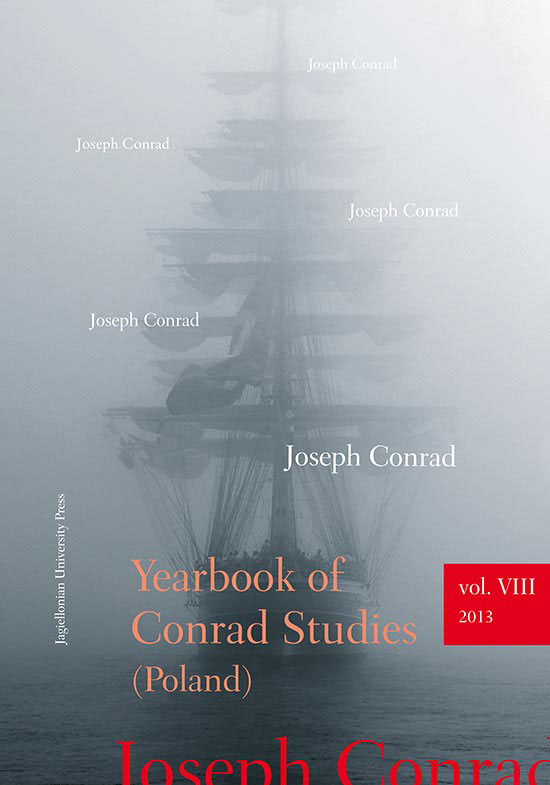
Keywords: Joseph Conrad; Bulgarian critical reception; migrant writer
This article examines the trends in Bulgarian critical appraisals of Conrad’s writing and the transformations they have undergone over the last hundred years. Though few in number, these appraisals are nevertheless profound and perceptive, keeping in focus the most essential messages of Conrad’s works, as well as the facts of the author’s remarkable life. The scope of these critical endeavours has long been of a rather limited nature, but in some of the articles there has definitely been a noticeable trend towards a monographic approach. The growing fascination with Conrad in Bulgaria became particularly evident during the celebrations to mark the 150th anniversary of the writer’s birth. The Polish Institute in Sofia contributed significantly to this event, organizing university lectures and film projections – not only in the capital, but also in other parts of the country. In addition, the Warsaw 150th anniversary exhibition entitled “Twixt land and sea” was invited to Sofia (the co-author of the present article being one of those who took part in the opening ceremony). This heightened interest in Conrad – the man and the writer – is partly the result of current trends towards intensive cultural interaction and also a growing fascination with migrant writers coming from multicultural backgrounds. It may well be that these recent developments have contributed to the publication of two monographs on Conrad: Stefana Roussenova’s comparative study entitled Dialogues in Exile: Joseph Conrad, Vladimir Nabokov, Eva Hoffman (2010) – which addresses the problems of exile and migration in some of Conrad’s works – and Margreta Grigorova’s monograph entitled Joseph Conrad – the Creator as Seafarer (2011), which not only reviews the seminal achievements that have contributed to the expansion of Conrad studies in Bulgaria, but also builds on them and takes them to completion.
More...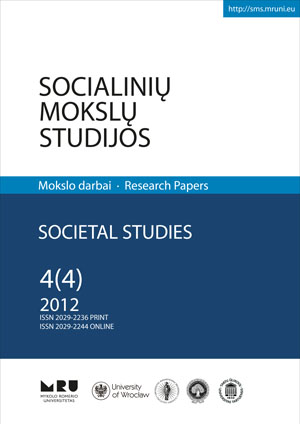
Keywords: personalism; collective identity; Byzantium after Byzantium; morphology of history; conservative avant-garde; Bulgarian intellectual culture 1919–1944
In this paper I investigate the compatibility between personalist philosophy and the Bulgarian identity discourse between the two World Wars. Having outlined the variability and conceptual tensions (on “collective personality,” e.g.) within Russian and French personalism(s) of the 1910s-1940s, I delineate four prerequisites for emerging and adopting personalism in interwar Bulgaria: (1) the post-idealist crisis of identities and identifications; (2) the reception of foreign personalist (or close to such) philosophy; (3) the reassessment of “home” (East-Christian) theological tradition and its philosophical implications; (4) the discovery of someone “other” needed worthy of being recognised as (collective) “Thee.” Postponing the exploration of the third prerequisite for a subsequent study, I conclude so far that within interwar Bulgarian secular thought only random juxtapositions between personalism and identity discourse can be expected, and I examine three such cases.
More...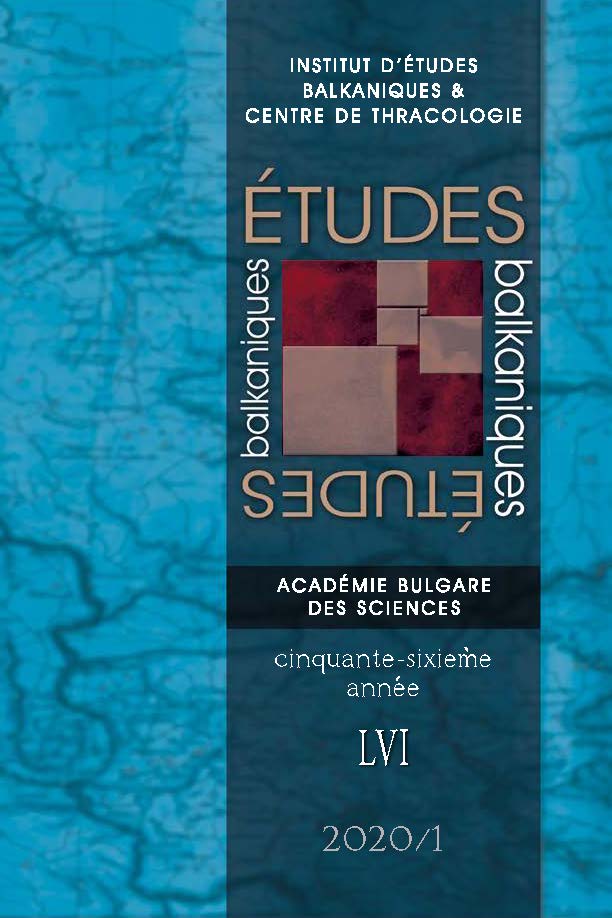
Keywords: Greek Language; Bularian Language; Transfer of Knowledge; Modernization; Economic Life;
Abstract: The purpose of this text is to present several exemples of the Bulgarian history that reveal the role of the Greek language in the transfer of knowledge concerning economic life and its importance for the modernization processes of the eighteenth and nineteenth centuries. I comment on the use of Greek as a vehicle for knowledge in the field of commerce and I retrace the penetration of double-entry bookkeeping and the knowledge in commercial epistolography and geography, closely linked to commercial activities. The analysis of the correspondence of Bulgarian merchants of the 19th century reveals the current use of this language in trade, even after the cooling of relations between Bulgarians and Greeks during the second half of the 19th century due to the incompatibility of their national programs.
More...